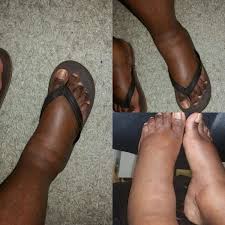
Hepatitis B: Treatment, Complications, Prevention
Hepatitis B is one of the hepatotropic viruses (that is, the viruses that like to attack the liver). Other examples are hepatitis A, Hepatitis C, Hepatitis D, Hepatitis E, yellow fever virus etc. It is a common medical condition in our environment, and one of the commonest sexually transmitted Infections that we have.
This is a continuation of our previous discussion. If you missed that, you can click here to read about the Causes and Symptoms of Hepatitis Infection. In this write up, we are going to talk about the Complications of Untreated Hepatitis B Infection, as well as the treatment and prevention strategies for the disease.
Also See: Hepatitis B Test, Cost and Where to do Them.
Table of Content
- Complications of Hepatitis B
- Treatment of Hepatitis B
- Prevention of Hepatitis B
- What to do after Exposure to Hepatitis B
Complications of Hepatitis B
People with this condition can sometimes develop serious liver disease. These mostly affect people with an untreated long-term (chronic) infection. These includes:
Fulminant hepatitis B:
In less than 1% of cases, short-term (acute) infection can lead to a serious condition called fulminant hepatitis B. This is where the immune system (soldiers of the body) attacks the liver in an attempt to clear the virus and causes extensive damage to the liver cells.
The symptoms of Fulminant Hepatitis are:
- confusion
- loss of consciousness
- swelling of the abdomen caused by a build-up of fluid
- severe jaundice
- severe weakness etc.
Fulminant hepatitis B can cause the liver to fail and is often fatal if not approached aggressively.
Cirrhosis:
Cirrhosis is a condition that causes scarring of the liver. It affects about 1 in 5 people who have chronic infection. Cirrhosis does not usually cause any noticeable symptoms until extensive damage to the liver has occurred.
When this happens, the symptoms of cirrhosis are:
- weakness
- loss of appetite
- weight loss
- feeling of unwell
- itchy skin
- tenderness, pain or swelling in the abdomen
- swelling of the legs etc.

There’s currently no cure for cirrhosis, although it’s possible to manage the symptoms and slow its progression. If the liver becomes severely damaged, a liver transplantation will be the only option.
Liver cancer
People with cirrhosis caused by the virus have about 2% chance of developing liver cancer every year. Generally, it cause about 80% of all Liver cancer worldwide (second only to tobacco smoking among the known human carcinogens).
Symptoms of liver cancer include:
- unexplained weight loss
- loss of appetite
- feeling very full after eating, even if the meal was small
- feeling of being sick
- yellow skin and eyes (jaundice)

Treatment for liver cancer may involve surgery to remove the affected part of the liver, a procedure to destroy the cancerous cells, or a liver transplant.
Treatment of Hepatitis B
Treatment for hepatitis B depends on how long the individual has been infected:
short term (acute) hepatitis B: does not usually need specific treatment, but may require treatment to relieve the symptoms, maintaining good fluid intake, reducing pain, and making the individual comfortable.
long-term (chronic) hepatitis B: is often treated with medication to keep the virus under control.
Treatment for acute Infection
Hepatologists will usually recommend:
- plenty of rest
- Administration of pain killers such as paracetamol or ibuprofen, for the abdominal pain
- Maintaining a cool, well-ventilated environment, wearing loose clothing, and avoiding hot baths or showers if the individual has itchy skin
- Use as metoclopramide, to stop nausea and help the feeling of unwell, chlorpheniramine or antihistamines to reduce itching.
Your doctor will give you a prescription for these if necessary.
Most people recover completely in a couple of months, but will be advised to have regular blood tests to check that they are free of the virus and have not developed chronic infection until at least the first year of the illness.
Treatment for chronic hepatitis B
If blood tests show that an individual still have hepatitis B after 6 months, the doctor may recommend medications to reduce the risk of complications and regular tests to assess the health of your liver.
Treatment is usually offered if:
- the immune system is unable to control the virus by itself
- there’s evidence of ongoing liver damage (as seen from the liver function test, viral load and liver ultrasound/CT Scan)
Hepatitis B medications can help keep the virus under control and stop it from damaging the liver, although they will not necessarily cure the infection and some people may require lifelong treatment.
See a doctor for the prescription.
Prevention of Hepatitis B
Testing and vaccination:
Hepatitis B vaccine offers an excellent protection against HBV. The vaccine is safe and highly effective. Vaccination consists of 3 doses of vaccine (shots) over the course of 6 months and protection lasts for at least 20 years.
You can ask in your locality where you can get the vaccine or visit any secondary or tertiary hospital around you. It is recommended that all children should receive hepatitis B vaccine starting at birth, as covered in the NPI.
If you have one or more risk factors for hepatitis B infection, you should get tested to ascertain whether you are:
- immune
- susceptible and need vaccination; or
- infected and need further evaluation by a physician
you can access testing in many labs in town.
Get tested today!
Prevention of Perinatal Hepatitis
If the mother is HBV-infected, she will give the infection to the baby during birth, unless the baby gets immunized within hours of birth. Giving the infant HBIG (hepatitis B immune globulin) and HBV vaccine immediately will reliably prevent infection of the infant.
Cultivating and maintaining Healthy Habits
The best way to prevent hepatitis B is with vaccination but other ways to reduce the risk of getting infected which will also help prevent hepatitis C and HIV include:
- Avoiding IV drug use
- Avoid sharing personal care items that might have blood on them (razors, toothbrushes)
- Health care or public safety worker must follow universal precautions and safely handle needles and other sharps
- Before getting a tattoo or a piercing, be sure of the safety of the instruments being used.
- If you are having sex with more than one steady partner, use latex condoms correctly and every time to prevent the spread of sexually transmitted diseases, including viral hepatitis and HIV, maintain on sexual partner or practice abstinence.
After Exposure to Hepatitis B
Hepatitis B infection can be prevented by getting vaccine and HBIG (hepatitis B immune globulin) soon after coming into contact with the virus preferably within 24 hours.
If you have recently been exposed to hepatitis B, you should immediately contact your doctor for further instructions.
In Conclusion:
Going back to the story at the beginning, it can be seen that the importance of proper management and follow-up for patients with HBV cannot be overemphasized.
Screening and immunization can save lives and must encouraged, and like the old saying goes, prevention is better than cure.



it is unbelievable and unimaginable that I survived CIRRHOSIS & HEPATITIS B. All thanks to Dr. Iyabiye who came to my rescue, I already lost my job and was about to lose my life when my mom discovered him and reached out for help. I had pains all over, swollen stomach and I lost appetite extend that to drink water was difficult but lucky me, I got cured by Dr. Iyabiye. Here is he’s contacts: iyabiyehealinghome@gmail.com
ReplyTell: +234 815 857 7300